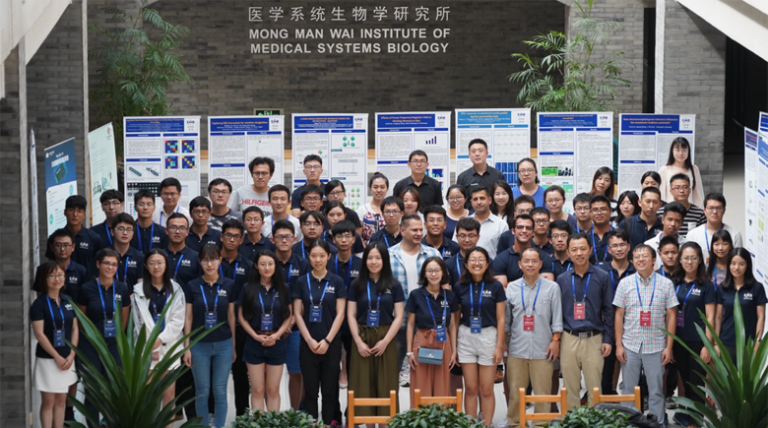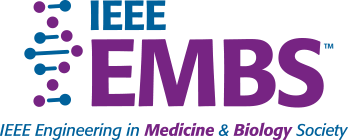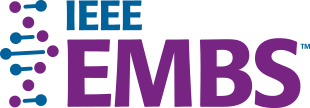The 4th IEEE EMBS international summer school of neural engineering (ISSNE ’18) announced its closure with success on Aug 17, 2018 in Tsinghua University (Beijing, China). With the theme of “Mind Reading Technology”, ISSNE ’18 invited twelve renowned neuroscientists and neural engineering scholars to give tutorial lectures and seminars on state-of-art technologies from neural decoding principles to advanced brain-computer interface (BCI) technology. More than seventy undergraduate and postgraduate students in biomedical engineering, automation, computer science, psychology, cognitive science, and life sciences, coming from China, Germany, South Korea, and Spain, joined this summer school. ISSNE’18 was co-chaired by Prof. Bo Hong from the School of Medicine of Tsinghua University and Prof. Shanbao Tong from the School of Biomedical Engineering of Shanghai Jiao Tong University. Prof. Dan Zhang from the Department of Psychology of Tsinghua University served as the program chair.

Summer school students and lecturers
The curriculum covered a variety of neural recording techniques and neural decoding methods including single neuron recording, EEG, intracranial EEG, fNIRS, fMRI, and etc. Prof. Shanbao Tong and Dr. Kian Torab (Blackrock Microsystems, USA) introduced the emerging technologies for brain imaging and stimulation, and electrophysiological recording techniques respectively; Prof. Yijun Wang from the Institute of Semiconductors of Chinese Academy of Sciences and Prof. Dan Zhang from Tsinghua University introduced the EEG-based BCI and brain state recognition technology respectively. While the lectures given by Prof. Gerwin Schalk from University at Albany-SUNY, USA focused on ECoG-based BCI technology. And Prof. Josef Parvizi from Stanford University shared the newest ECoG-based investigation on digital figure and face recognition encoding in the human brain. Also, in Prof. Bo Hong’s lecture, the network of language processing and its neural coding in the brain were introduced. Besides, Prof. Han-Jeong Hwang from Kumoh National Institute of Technology showed fNIRS-based mind reading technology. While Prof. Pei Sun from Department of Psychology, Tsinghua University gave a tutorial of the fMRI working principle and data analysis. And Prof. Yukiyasu Kamitani from Kyoto University and Prof. Justin Gardner from Stanford University both shared their newest fMRI-based visual decoding studies. Furthermore, Prof. Xiaorong Gao from School of Medicine of Tsinghua University organized a live demonstration of the brain-computer interface systems, including brain controlled typing and virtual car driving.

Leading scientists in the field joined summer school faculty
On the day of Student’s Presentations, Baishen Liang (Chinese Academy of Sciences) won the Best Presentation Award, and Chong Wang (University of Electronic Science and Technology of China) was the winner of Best Poster Award. During the summer school, the faculty members and students visited the Brain Science Laboratory of Tomorrow Advancing Life (TAL) and the H+Lab of Tsinghua University, in which they experienced the fantastic applications of neural engineering technology to the fields of education and psychology.

Students in Oral Presentations

Student poster session

Panel discussion on the ethics of mind reading
With emerging techniques in neural imaging, neural signal processing and machine learning, unprecedented details of brain networks and codes have been revealed gradually. Mind reading technology, originated from brain-computer interface, has emerged as scientific facts out of fictions as well. There thus have been public concerns about ethical issues. The summer school closed in a roundtable discussion on the ethics of mind reading technologies and applications. The participating professors and students made optimistic predictions on the trend of the development and social impacts of brain-computer interface and mind reading technology. And a consensus on principles of safety, voluntariness and transparency for mind reading technology development was also reached on the discussions.
Acknowledgments: We are grateful to the IEEE EMBS, the School of Medicine, Department of Psychology, and Laboratory of Brain and Intelligence of Tsinghua University, and the Chinese society for neural engineering for their support.






